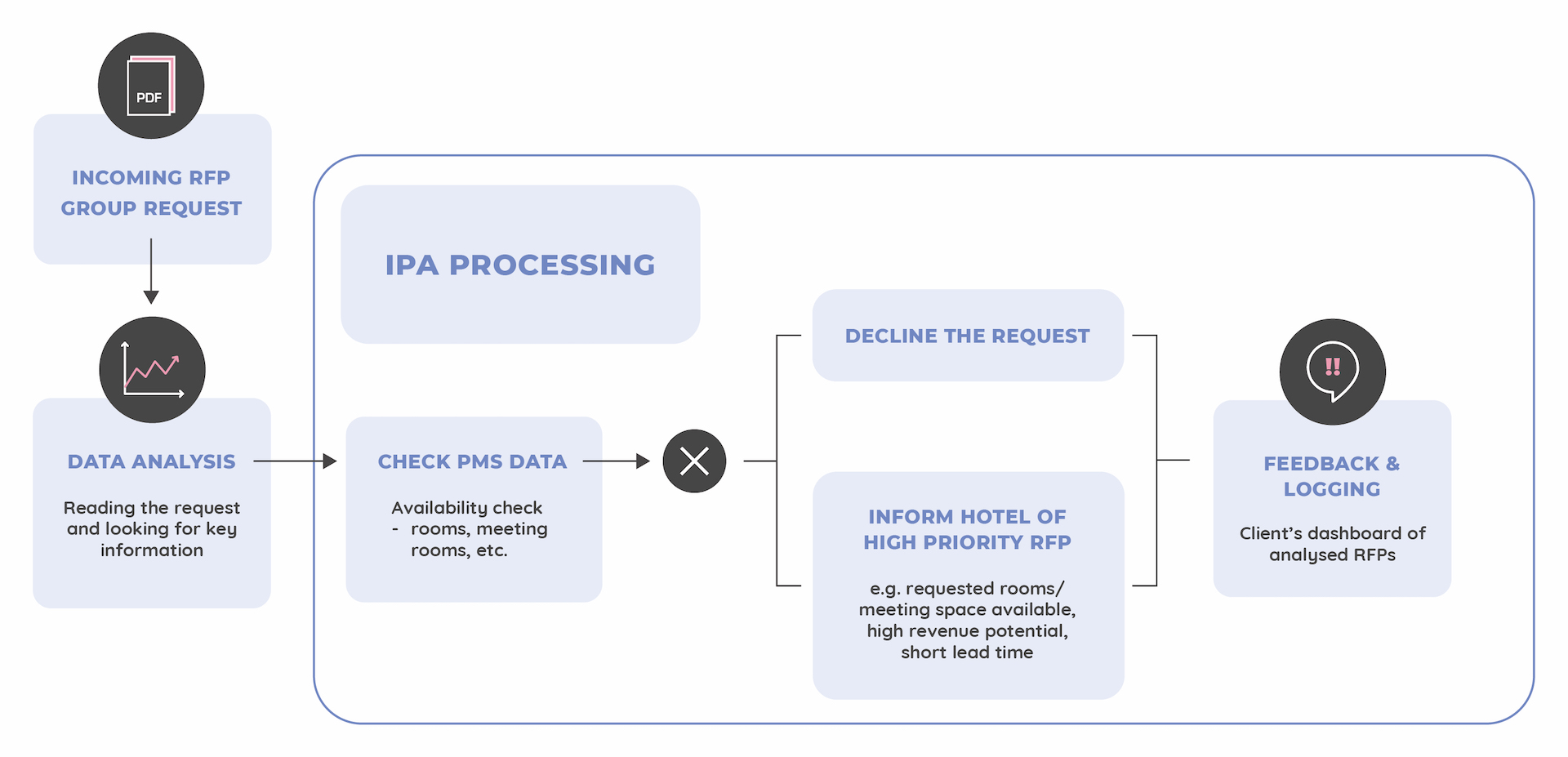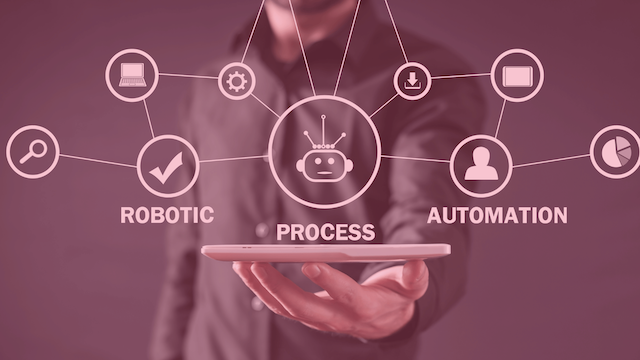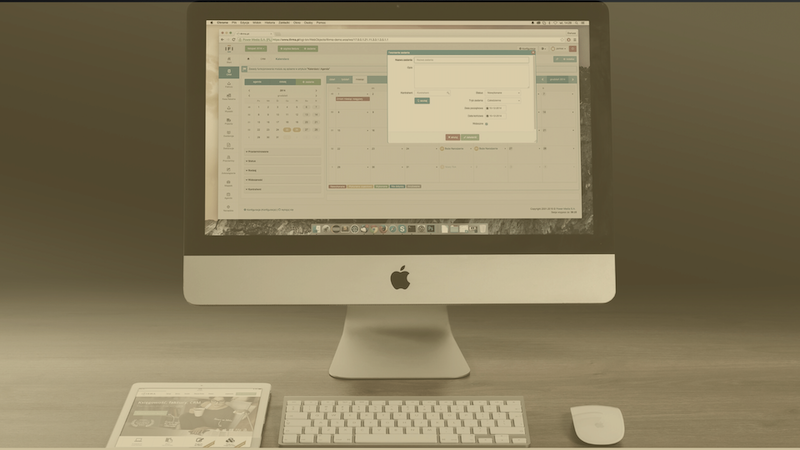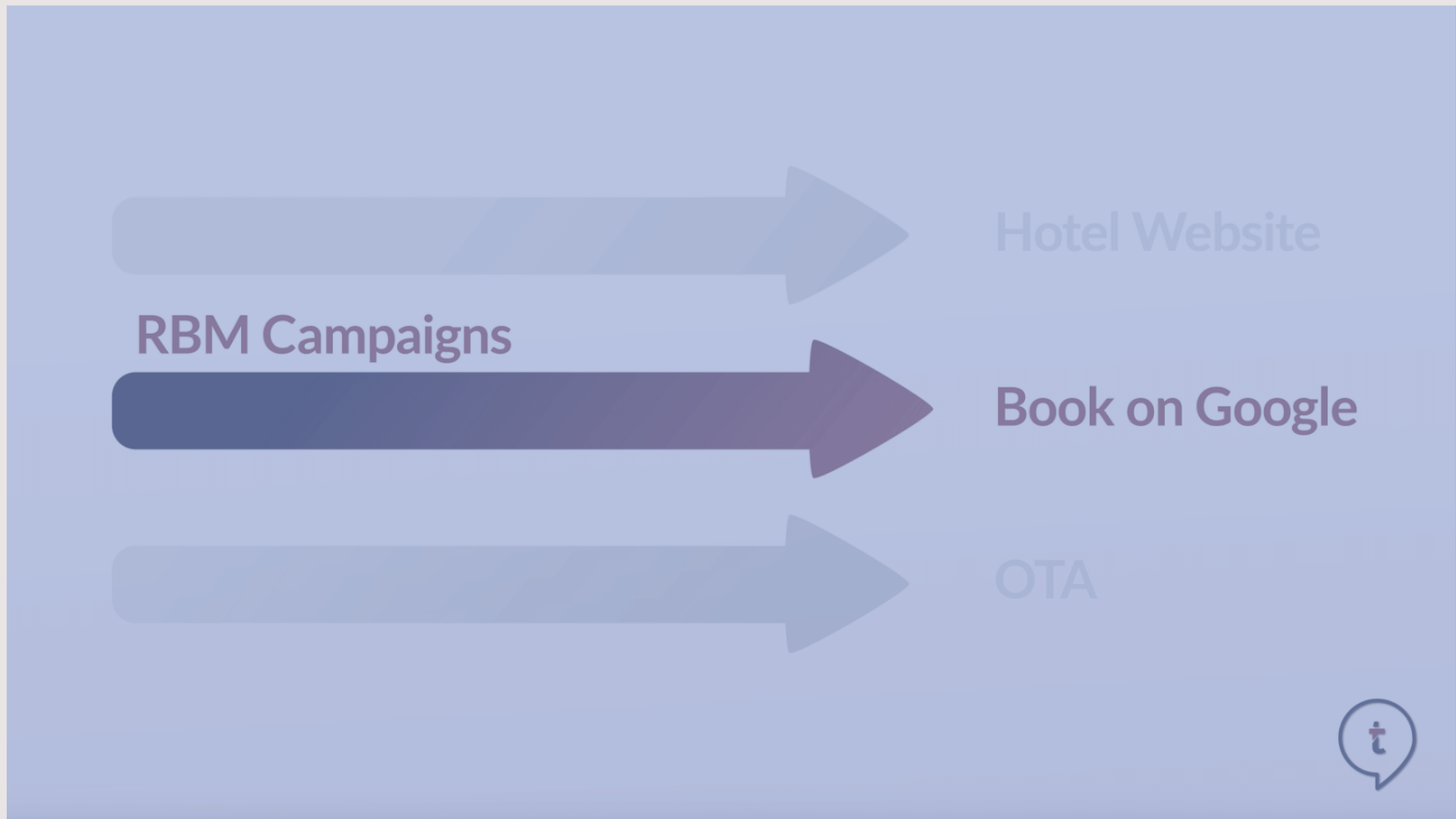Robotic Process Automation In Hospitality
In the bustling world of hospitality, the pressure is on. Hotels must constantly adapt to shifting customer demands, streamline operations, and cut costs, all while dealing with high staff turnover rates. They're also tasked with crafting unique, memorable experiences for their guests. Amid these challenges, Robotic Process Automation (RPA) has emerged as a potent solution, becoming an influential game-changer for the industry.
The hospitality sector grapples with several unique challenges, one of which is a labyrinth of disjointed data and poorly integrated systems. This obstacle hinders hoteliers from extracting accurate, actionable insights as data often resides in a myriad of siloed systems. These result in inconsistencies and delayed decision-making.
However, RPA presents an opportunity to streamline data aggregation processes, thereby eliminating the need for manual data entry and reducing the likelihood of errors. With the ability to pull data from the cloud and interact with IT systems via user interfaces, APIs, and flat files, RPA not only minimises the technical footprint but also cuts down on risk. It's less invasive and quicker to deploy than traditional software changes, making it a safer alternative, especially for older legacy systems.
Another significant challenge is the high staff turnover rate. The hospitality industry is notorious for its high turnover rates, leading to a constant need for retraining and time-consuming onboarding processes. RPA can help address this challenge by automating repetitive and time-consuming tasks, enabling staff to focus on providing personalised and high-quality service to guests. This leads to improved staff retention rates, better job satisfaction, and increased employee engagement.
There is always the question of whether the reality will live up to the hype - won’t tasks that are automated really displace people’s jobs? One great approach is asking people to list the top tasks they dislike or take the most time. Then ask people to list all of the tasks that are the ‘next best alternative’ to the unfavourable tasks. What we most often find is that, many of the tasks that make the top of the ‘most disliked’ list are exactly those that RPA is most suited to do. And when people list the ‘next best alternative tasks’, they are the ones that would really drive the hotel business forward, such as improved financial performance analysis and predictions or significant improvements in personalised guest-focused services. Despite the fact that the results are very important, one typically does not create job roles for a person to copy data from one spreadsheet to another or download and file banking statements for four to eight hours per day.

Many tasks in the hospitality industry are operationally vital yet highly redundant and manual, leading to staff burnout and negatively impacting the guest experience. RPA can help streamline various processes such as reservation management, check-in and check-out procedures, housekeeping, distribution, revenue management and finance. By automating these tasks, hotel staff can focus on providing a more personalised guest experience and delivering exceptional service, ultimately improving guest satisfaction and driving loyalty.
The adoption of RPA in the hospitality industry drives innovation by enabling data-driven insights, improving accuracy, and reducing human error. This helps hoteliers to stay ahead of the curve, providing unique and personalised experiences to guests, leading to increased revenue and profitability. Let us look at some examples of how RPA is being implemented in the hospitality industry -
- Melia Hotels International, one of the largest hotel chains in Spain, has adopted RPA to streamline its financial processes, reducing the time taken to complete certain tasks from hours to minutes. The hotel chain has improved its efficiency and reduced costs by automating processes such as invoice processing and payment reconciliation. Additionally, by freeing up staff from repetitive and time-consuming tasks, Melia Hotels has been able to focus on enhancing the guest experience, providing more personalised services, and driving customer satisfaction. Source: https://www.uipath.com/newsroom/melia-to-implement-robotic-process-automation-with-uipath
- Louvre Hotels Group, a major player in the global hospitality industry, has implemented RPA to improve its distribution processes and data management. By automating these tasks, the group has been able to optimise the staff and refocus them on higher-value functions, reduce manual errors, and improve accuracy. Source: https://www.hotelnewsresource.com/article124564.html
- Aimbridge Hospitality, one of the world's largest independent hotel investment and management firms, has implemented RPA to streamline its revenue management processes, improving the accuracy of data insights and reducing manual errors. By automating processes such as forecasting, pricing, and distribution, the hotel management firm has been able to optimise its revenue management strategies, leading to increased revenue and profitability. Source: https://rsmus.com/insights/services/digital-transformation/aimbridge-case-study-hospitality-company-focuses-on-process-integration.html
RPA can also be paired with other technologies, including AI-powered document analysis (OCR, etc.) and Computer Vision, to do many different tasks, such as accounts payable automation and hotel content management.
According to a report by Grand View Research, the global RPA market size is expected to reach USD 25.56 billion by 2027, growing at a Compound Annual Growth Rate (CAGR) of 33.6% from 2020 to 2027. The hospitality industry is one of the major sectors driving this growth, with the adoption of RPA expected to increase significantly in the coming years. Source: https://www.grandviewresearch.com/industry-analysis/robotic-process-automation-rpa-market
In conclusion, considering the abundance of manual yet operationally vital tasks that hotel staff perform daily, automation through RPA can significantly enhance operational efficiency and data accuracy. The potential benefits range from reducing errors to speeding up resolution times - all measurable improvements that could positively impact the bottom line. As such, RPA is rapidly becoming an essential tool in the hospitality industry's toolkit.
About the Author

Founder of RobosizeME.
An experienced business and technology executive, Stephen is CEO and Founder of RobosizeME, providing all-inclusive process automation solutions to the hospitality industry. In 2022, RobosizeME won the e20x Judge’s Award at HITEC in Orlando, USA, and was shortlisted for the Skift Idea Awards in the Business Outcomes. The company provides process automation to hotel companies all over the world, including Louvre Hotels Group, Sircle Collection, CIVANA Wellness Resort and Spa and Story Hospitality. An authorised UiPath managed services partner, RobosizeME partners include Apaleo, Maestro PMS, Mews, Oracle Hospitality and Shiji Group.
Before RobosizeME, Stephen was co-founder of Sciant, a vertically focused software solutions provider serving Transportation & Logistics, and Travel & Hospitality sectors. Sciant won numerous awards, including being twice listed (2021, 2022) in Financial Times 1000 fastest growing companies in Europe. Sirma Group Holdings acquired Sciant in November 2021.
Stephen is also an angel investor, having participated in several seed rounds for companies in Europe and US. For nearly three decades, Stephen has been associated with technology and e-commerce. He has spent more than 20 years designing and delivering solutions to the hospitality industry in large and mid-sized markets, gaming brands, and start-ups - employing his extensive knowledge and experience in product development, management and integration, business development, and consulting.
He is well experienced in start-ups, both bootstrapped and venture-backed. He has lived and worked extensively in Austria, Bulgaria, the Czech Republic, France, Germany, India, Poland, and the United States. He has delivered extended onsite projects in China, Japan, and Malaysia. Born and raised in rural northern Vermont, USA, he is passionate about the outdoors, skiing, high altitude trekking and cuisines from around the world.
Connect with Stephen on Linkedin.
RobosizeME is a Member at techtalk.travel
Also make sure to find these supporting content elements of the editorial Robotic Process Automation in Hospitality





![V03: The History of Hotel & Travel Technology | [Updated] Infographic](https://www.techtalk.travel/storage/app/uploads/public/63f/e6f/ec8/63fe6fec80447817849943.jpg)



Create an account to access the content.
Get access to Articles, Video's, Podcasts, Think Tanks, Infographics and more.
Click “Sign In” to accept our
Terms of Service Privacy Policy